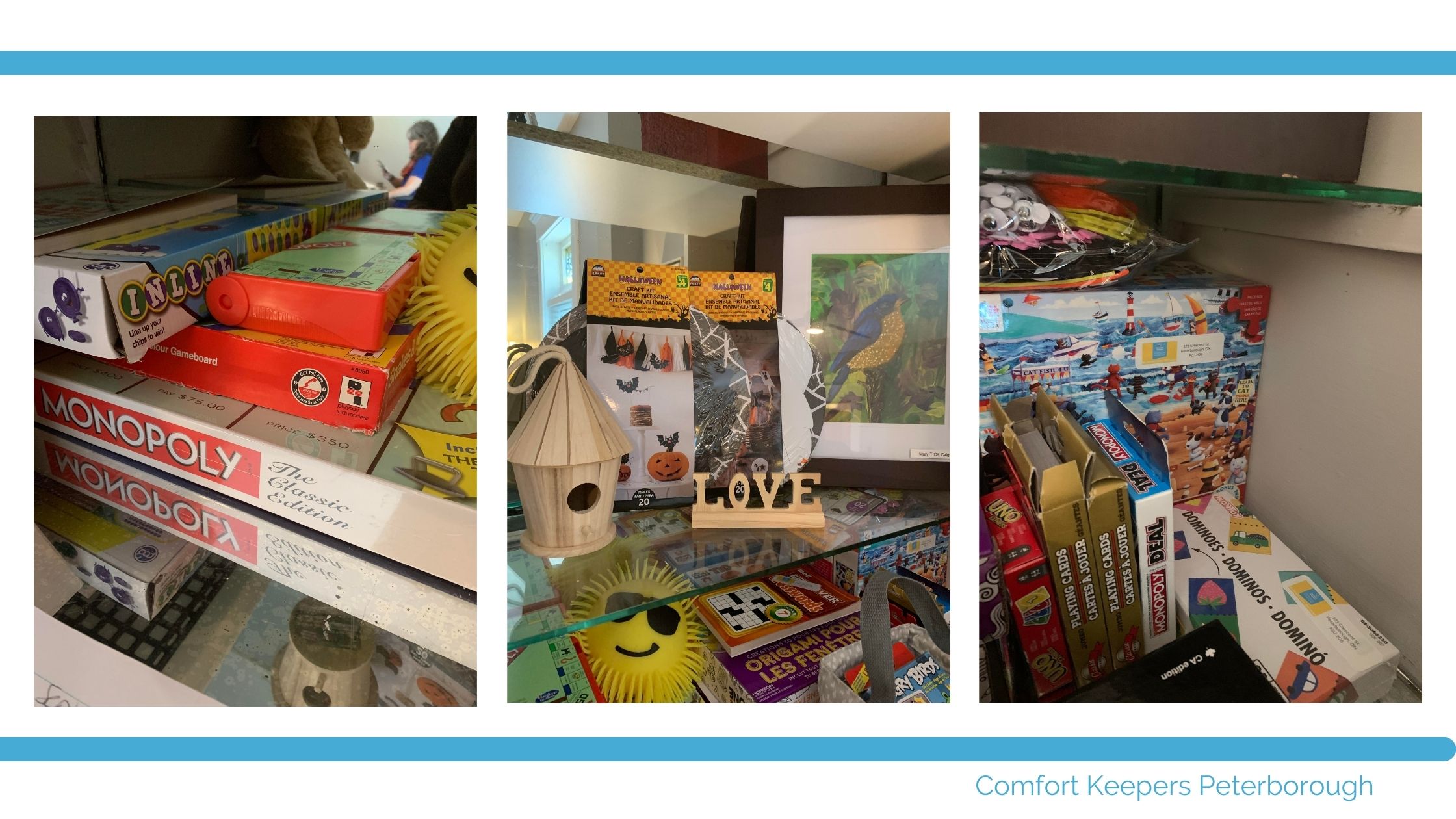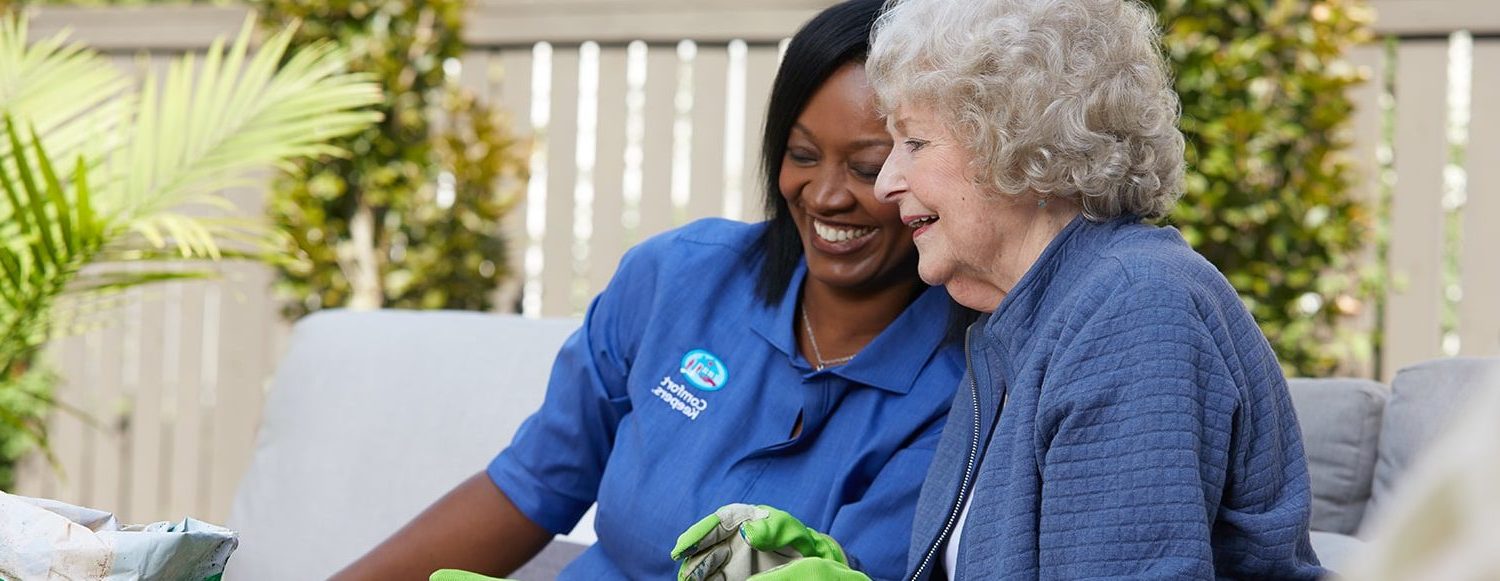Companionship For Seniors: The Importance Of Human Connection And How You Can Help The Seniors In Your Life Find Companionship
Blog | September 30, 2021
It’s Easy To Take Companionship For Granted…Until It’s Gone.
You may not think about it but as an adult, you interact with several people every day who provide companionship to you in their own unique ways. For some, it is coworkers and friends. For others, it is family or a spouse. However, companionship for seniors can be harder to come by.
For seniors, age, limited mobility, lack of transportation or circumstance can mean opportunities for social engagement and companionship become fewer. They retire from jobs, children grow up and move away, a spouse may pass away. For some, old age can be a lonely and even isolating time of life.
This lack of companionship can have very real effects on seniors. Not only can an elderly adult’s quality of life suffer, so can his or her mental and physical health. Regularly — ideally daily — companionship is one way to shore up a senior’s spirits and help them live their happiest and healthiest life.

Companionship Enriches The Lives Of Seniors In Many Ways.
“The solution to alone-ness is not more solitude, but companionship and community.” — Robert Fulghum
Companionship can be defined as “a feeling of fellowship or friendship” and can be applied to a wide variety of connections and relationships. The obvious examples of companionship shared above (family, a spouse, friends, and co-workers) are only some of the people who can provide companionship for seniors. A regular bus or taxi driver, for example, can be a companion of sorts. The man or woman who delivers the mail or the groceries becomes a familiar and welcomed friend in the day-to-day life of many older adults.
Whether it is sharing intimate conversations or simply the predictable and familiar face of someone in the community that a senior comes to rely on companionship is part of what makes elder adults feel connected, appreciated and cared for.
The Benefits Of Companionship For Older Adults.
Not only is companionship enjoyable and comforting for seniors, but research shows it is also one of the most important aspects of living a long and healthy life. Below are some of the important ways companionship benefits the elderly members of our families and communities.
Seniors who have regular companionship:
Are less likely to feel lonely and isolated.
Feelings of loneliness and isolation are closely linked to depression and anxiety among seniors. The connection a senior shares with a companion helps to bring comfort, moments of joy, and a sense of belonging and purpose to life.
Maintain their independence longer.
As a senior ages, physical and cognitive issues can begin to settle in which can make it unsafe or impractical to continue living independently. The helping hands of a companion can delay a move to an assisted living facility. Likewise, the presence of a companion can motivate a senior to keep up with day-to-day household chores and to reconnect with the simple joys of seasonal decorations and celebrations.
Stay in better physical health.
A senior with a companion is much more likely to stay active and mobile. Whether it is getting outside for a walk or doing daily movements indoors, having the moral and physical support of a friend makes it much more enjoyable. There is also less opportunity for a senior to slip or fall when they have the helping hand of a companion available to them.
Have more opportunities for fun and joy in their lives!
As they say, variety is the spice of life and having a companion on hand to experience new things with is one of life’s joys. Whether it is playing games, learning new skills, or indulging in life-long hobbies seniors thrive when they have someone to share time and connection with.

Helping A Senior Loved One Find Companionship.
As much as you may like to be there for your senior parent or loved one, you are busy and it is not always possible. Whatsmore, there are benefits to have a diverse group of people involved in the care and support of a senior adult! Everyone brings something different to the table and the companionship a peer can provide may offer something needed. Some ways you can help your senior loved one connect with a companion include the following:
- If you know your elderly parent has friends in the community, see how you can help them set up and keep regular visits. If transportation is an issue, you could organize a taxi service or reach out to a driving service for seniors to resolve the issue.
- If you have an extended family, you could offer to schedule weekly visits so your senior loved one has something to look forward to without having to play phone tag or ask for the companionship they need.
- Look into local volunteer programs and local seniors centres. These may also provide a place and time for the senior in your life to meet new people and build new connections.
If none of these options is available to you and your senior, there are in-home companionship services for seniors that you can rely on.
In-Home Companionship Services For Seniors.
When family and friends aren’t available to spend time with your ageing parents or loved ones, the in-home support of a caregiver can be the perfect solution. At Comfort Keepers, providing companionship to our clients is always a treasured responsibility. For you and your family, working with an in-home companionship service there are many distinct advantages including professional and compassionate companions and a consistent schedule chosen to meet the needs of you and your family.
When you add a Comfort Keeper caregiver to your elderly loved one’s support team, they are able to engage with them in a wide variety of activities and tasks.
- Cooking and sharing meals
- Running errands and getting out in the community
- Playing games, crafting, and working on hobbies
- Enjoying time outdoors or trying new ways of being physically active indoors
- Sharing a hot drink and talking or looking through albums
The options are limited only by the senior client’s abilities and interests.
To bring more fun and joy into the lives of our senior clients, Comfort Keepers Peterborough has established a new Activity Corner stocked with games, seasonal items, craft supplies, books, and more. We are always looking for ways to connect with our clients and enrich their quality of life. We know from experience that in-person companionship is an important part of a senior’s wellbeing.

Your Senior Loved One Deserves The Connection And Comfort Of A Companion.
Seniors who live alone are at risk of feeling lonely and isolated — especially when regular companionship is not available to them. The importance of human connection is something that shouldn’t be ignored when you are helping your senior parent or loved one build a strong community of supporters and caregivers. Mental and physical health and well as the quality of life seniors experience are significantly better when companionship is part of the picture.
If you, your family or your local community programs are not able to be there to share that time and connection with an ageing loved one, the support of an in-home companion may be the best choice for your family. Comfort Keepers Peterborough is always happy to help. Contact us today to learn more about how our caregivers can provide meaningful companionship to the senior in your family.
Individualized Home Care Options
Long-Term Home Care, 24 Hour Home Care & Short Term Care Options Customized for You







